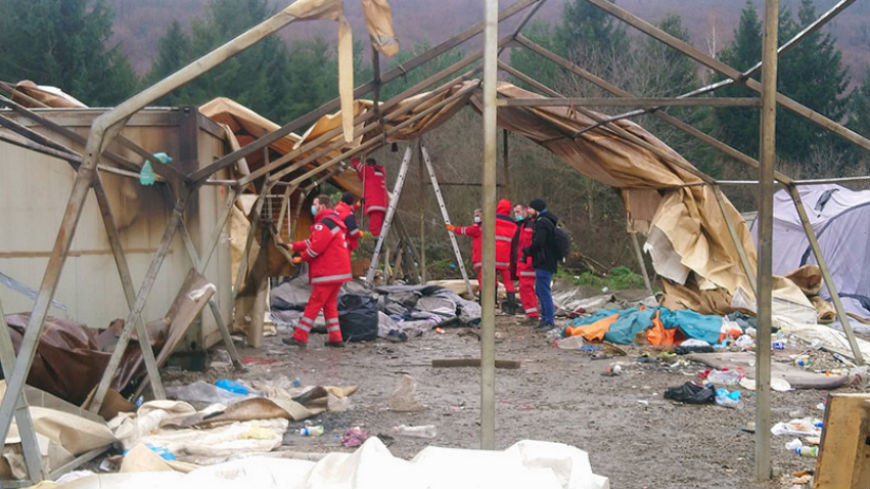On 11 December 2019, the Commissioner for Human Rights, Dunja Mijatović, welcomed the closure of the improvised camp “Vučjak” near Bihać where migrants and asylum seekers had been languishing for months in absolutely dire conditions. This much-needed closure was made possible thanks to co-operation between the state and the Una-Sana and the Sarajevo canton authorities, and to the committed work of various humanitarian and international organisations engaged on this issue. The Commissioner also noted that almost all the people living in the camp accepted to be relocated without any resistance. She conducted visit to Bosnia and Herzegovina on 2-6 December 2019, in which she focused specifically on the situation of asylum seekers and migrants in the country. Apart from pushing for he immediate closer of the Vučjak camp, the Commissioner also called action to address the situation of asylum seekers and migrants sleeping rough or in abandoned buildings, for improved reception conditions across the country, and for better identification of protection needs for those wanting to apply for asylum, victims of trafficking, and children, in particular unaccompanied minors. The Commissioner further express alarm about consistent report of violent push-backs by Croatian law enforcement officials on the border between Bosnia and Herzegovina and Croatia.
On 3 December 2019, the Commissioner published an exchange of letters with the Minister of Citizen Protection of Greece, Michalis Chrysochoidis, and the Alternate Minister for Migration Policy of Greece, Giorgos Koumoutsakos, concerning the plans to transfer migrants from the Aegean islands to the mainland and set up closed reception centres on those islands, as announced by the government previously. The Commissioner requested information about the deprivation of liberty regime that will be applicable to the new facilities that the government plans to build, whether the government intends to move all the people who have not yet been transferred to the mainland at the time of their opening to the new closed centres, and if all new arrivals will be housed in these facilities. The Commissioner also asked for clarifications concerning the decision to opt for closed reception and identification centres, the safeguards that the Greek government intends to put in place in order to ensure that detention is used as a measure of last resort and details about the government’s plans as regards alternatives to detention on the islands, notably for vulnerable people, including children. Lastly, pending the implementation of the announced measures, she requests information about any immediate measures to improve the living conditions of those who remain in and around the existing facilities on the Aegean islands.
On 22 November 2019, the Commissioner published her written observations to the European Court of Human Rights in the case of S.S. and others v. Italy. This case concerns the interception and rescue operation of a boat in distress in the Mediterranean Sea, carrying around 150 persons who had left Libya, and the alleged human rights violations resulting from this operation. The Commissioner underscored that changes adopted in member states’ migration practices in the Central Mediterranean, in particular certain types of assistance provided to the Libyan Coast Guard, have resulted in increased returns of migrants, asylum seekers and refugees to Libya, despite the fact that member states knew, or should have known, about the risk of serious human rights violations they would face in the country. In addition, the Commissioner highlighted that, at the receipt of distress calls originating from any search and rescue region, member states’ relevant authorities should not transfer responsibility for rescue operations to other state authorities, when they know or should know that such action would expose people in distress at sea to serious violations of their human rights. Lastly, she stressed that instructions issued in the course of such operations must be human rights compliant and that they should neither obstruct safety at sea and effective rescue, nor lead to the disembarkation of persons rescued at sea in a place that is not safe.



